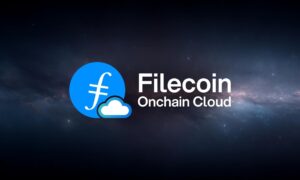Driven by digital transformation, the importance of safeguarding digital assets has never been more critical. Whether it’s personal information, intellectual property, or financial data, the security of these assets remains paramount. Decentralized storage is emerging as a revolutionary solution to enhance both data protection and financial security.
The Rise of Decentralized Storage
Centralized storage systems, which rely on single-point data servers, have long been the backbone of digital data storage. However, they are increasingly vulnerable to breaches, outages, and cyberattacks. In contrast, decentralized storage disperses data across multiple nodes, making it more resilient to attacks and outages.
Decentralized storage operates on blockchain technology or peer-to-peer networks. Unlike traditional systems, these storage solutions use encryption and data sharding to ensure security. Data is broken into smaller pieces, encrypted, and distributed across a global network of nodes. Only authorized users with the correct encryption keys can access and reassemble the data.
How Decentralized Storage Enhances Financial Security
Financial data is one of the most sensitive categories of information today. It includes bank records, cryptocurrency holdings, investment portfolios, and transaction details. Any compromise of this data can lead to severe financial and reputational damage. Here are some key ways decentralized storage ensures financial security:
Data Redundancy and Reliability
Traditional systems store data in centralized servers, making them vulnerable to single points of failure. A power outage, natural disaster, or cyberattack can lead to permanent data loss. Decentralized storage, on the other hand, ensures data redundancy by distributing it across multiple nodes. This makes data recovery seamless, even in the face of local disruptions.
Enhanced Privacy and Security
Decentralized storage prioritizes encryption and anonymization. With no central authority holding the encryption keys, unauthorized access becomes nearly impossible. This added layer of security is critical for financial data, where privacy breaches can lead to fraud or identity theft.
Resilience Against Cyber Threats
Centralized systems are prime targets for hackers due to their predictable structure. In contrast, decentralized systems disperse data across thousands of nodes, making it exceedingly difficult for hackers to locate and compromise sensitive information. Even if one node is breached, the encrypted nature of the data ensures that it remains unreadable.
Cost Efficiency for Businesses
Decentralized storage offers a cost-effective solution for businesses managing large volumes of financial data. Since data is stored on distributed networks, users pay only for the storage they use, often at a lower rate than centralized cloud providers. This affordability ensures that even small businesses can protect their financial data without breaking the bank.
Key Players in Decentralized Storage
Several platforms are leading the way in decentralized storage solutions, each offering unique features to enhance data security:
Filecoin:
An open-source storage network that incentivizes users to rent out unused storage space.
Storj:
Known for its scalability, Storj employs advanced encryption to secure data.
Arweave:
Focuses on permanent data storage, making it ideal for archival purposes.
Sia:
A low-cost decentralized storage platform offering robust security features.
Real-World Applications of Decentralized Storage
Decentralized storage has applications across various sectors, particularly in safeguarding digital assets. Some notable use cases include:
Cryptocurrency Wallets
Storing private keys on centralized systems exposes users to significant risks. Decentralized storage provides a secure alternative, ensuring private keys remain encrypted and accessible only to the rightful owner.
Supply Chain Management
In industries like logistics and retail, decentralized storage ensures transparency and security in transaction records. This prevents fraud and ensures the integrity of financial data.
Healthcare Data Protection
The healthcare sector handles vast amounts of sensitive data, including financial transactions for insurance claims. Decentralized storage safeguards this data from breaches while maintaining compliance with regulatory requirements.
Intellectual Property Protection
Artists, writers, and inventors often rely on digital platforms to store their creations. Decentralized storage ensures these valuable assets are protected from theft and unauthorized modifications.
Challenges of Adopting Decentralized Storage
While decentralized storage offers numerous benefits, it is not without challenges. Adoption requires addressing the following issues:
Regulatory Uncertainty:
Governments worldwide are still catching up with the regulatory frameworks for decentralized technologies. This uncertainty can hinder widespread adoption.
User Education:
Many users are unfamiliar with the technical aspects of decentralized storage, creating a barrier to entry.
Scalability Concerns:
As data volumes grow, ensuring the scalability and efficiency of decentralized storage systems remains a challenge.
The Future of Financial Security with Decentralized Storage
As digital transformation accelerates, the need for robust security solutions will continue to grow. Decentralized storage represents a paradigm shift in how we protect and manage digital assets. Its ability to safeguard sensitive financial data, ensure privacy, and resist cyberattacks makes it indispensable for the future.
Moreover, decentralized storage aligns with the broader push toward decentralized finance (DeFi), creating a secure infrastructure for a new wave of financial innovation. By combining decentralized storage with smart contracts and blockchain technology, users can achieve unprecedented levels of security and transparency.
Conclusion
Protecting financial data is a top priority. Decentralized storage offers a compelling solution to the vulnerabilities of traditional systems, ensuring data integrity, privacy, and resilience. As more industries recognize its potential, decentralized storage is poised to become a cornerstone of financial security, empowering individuals and businesses to safeguard their digital assets with confidence.



































